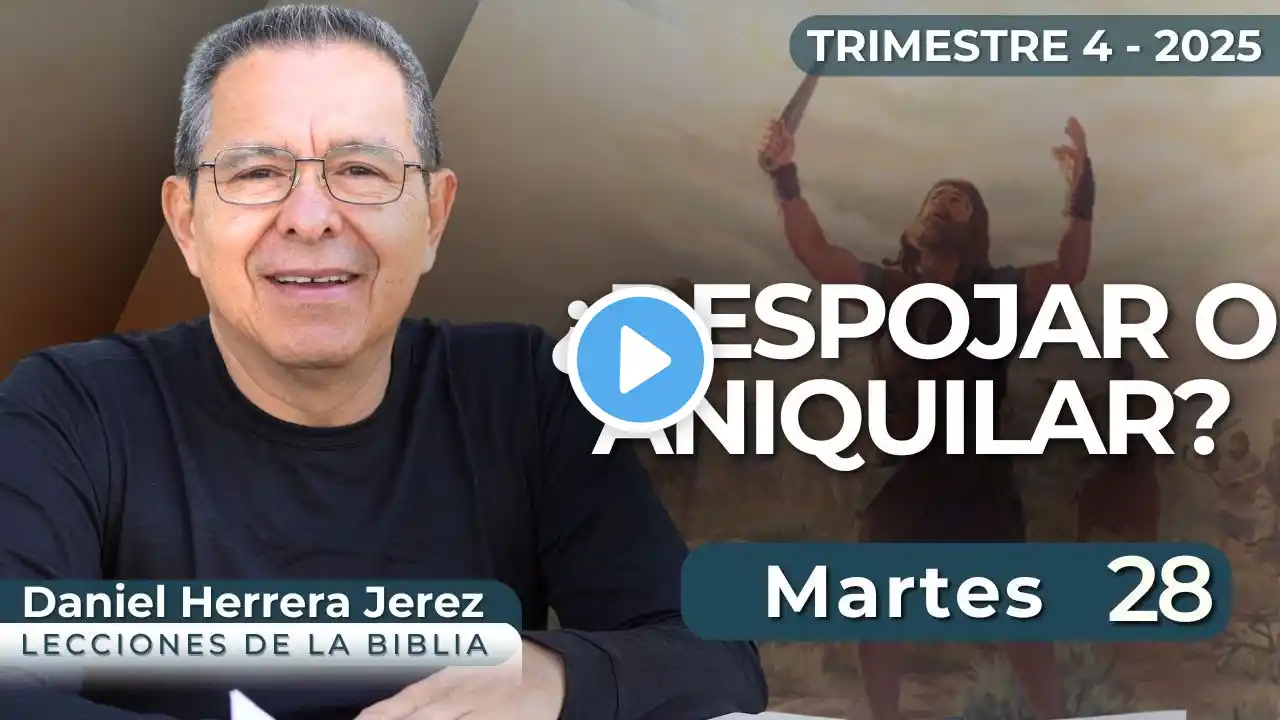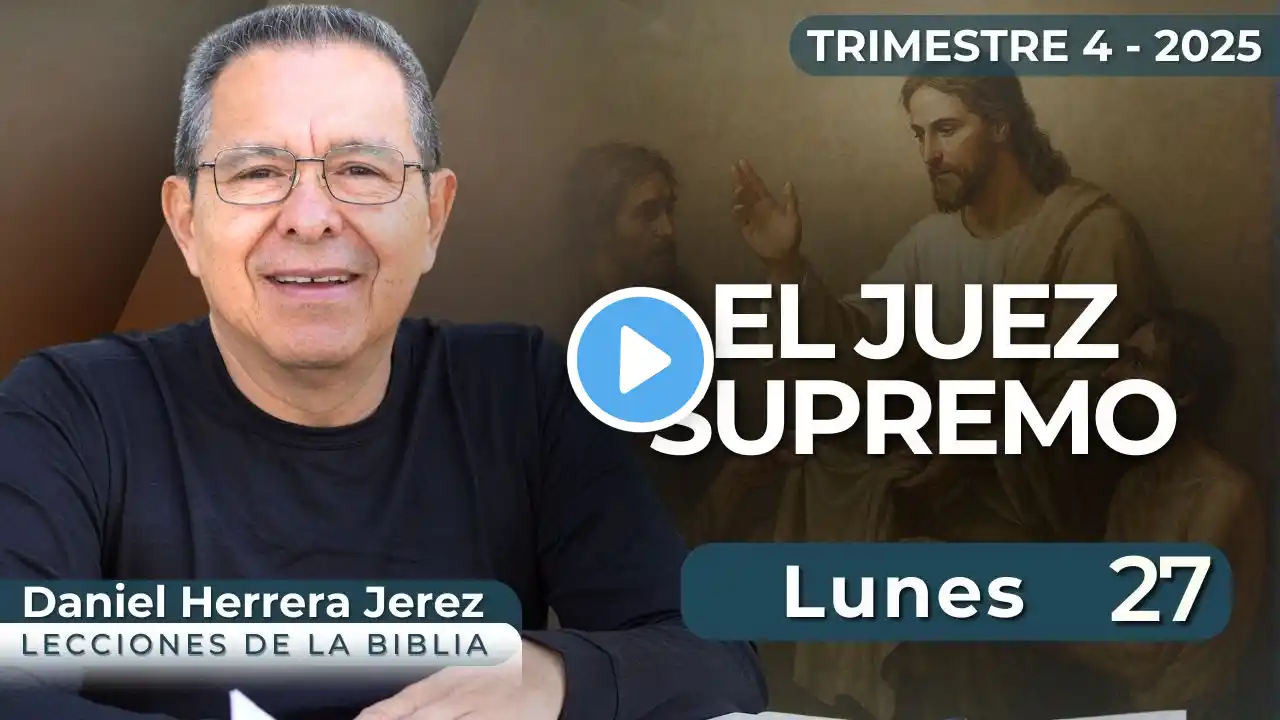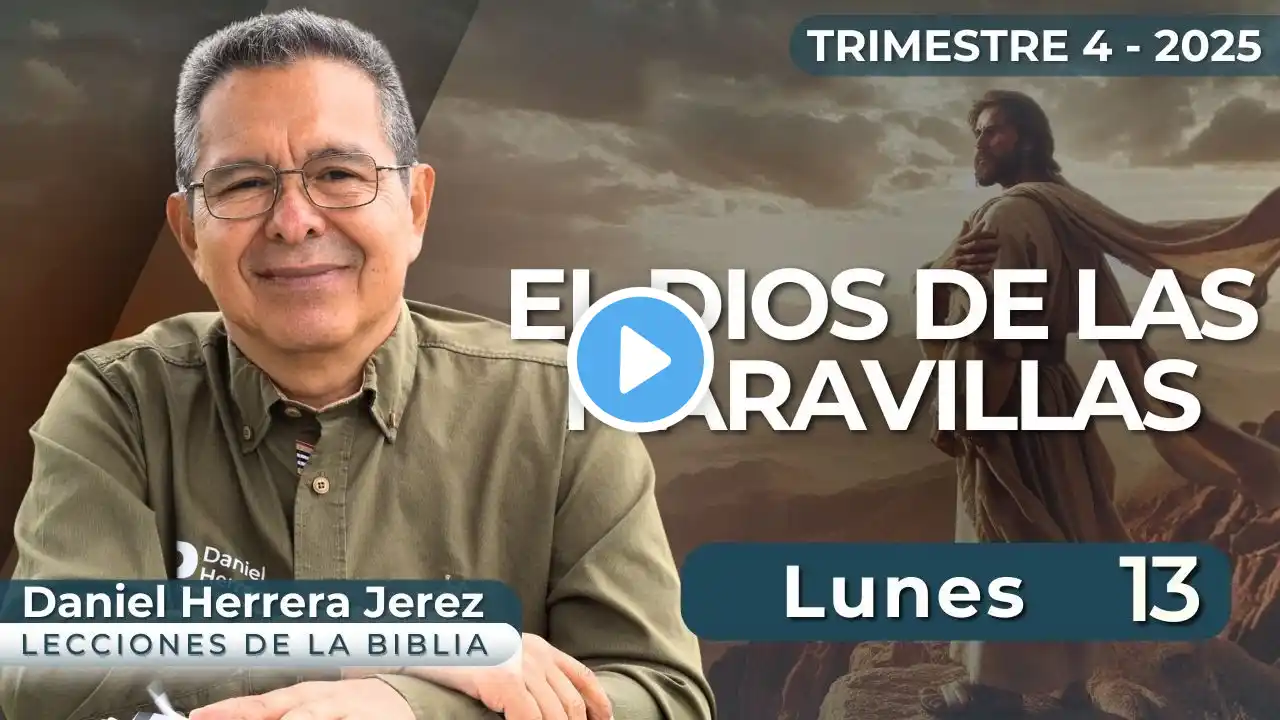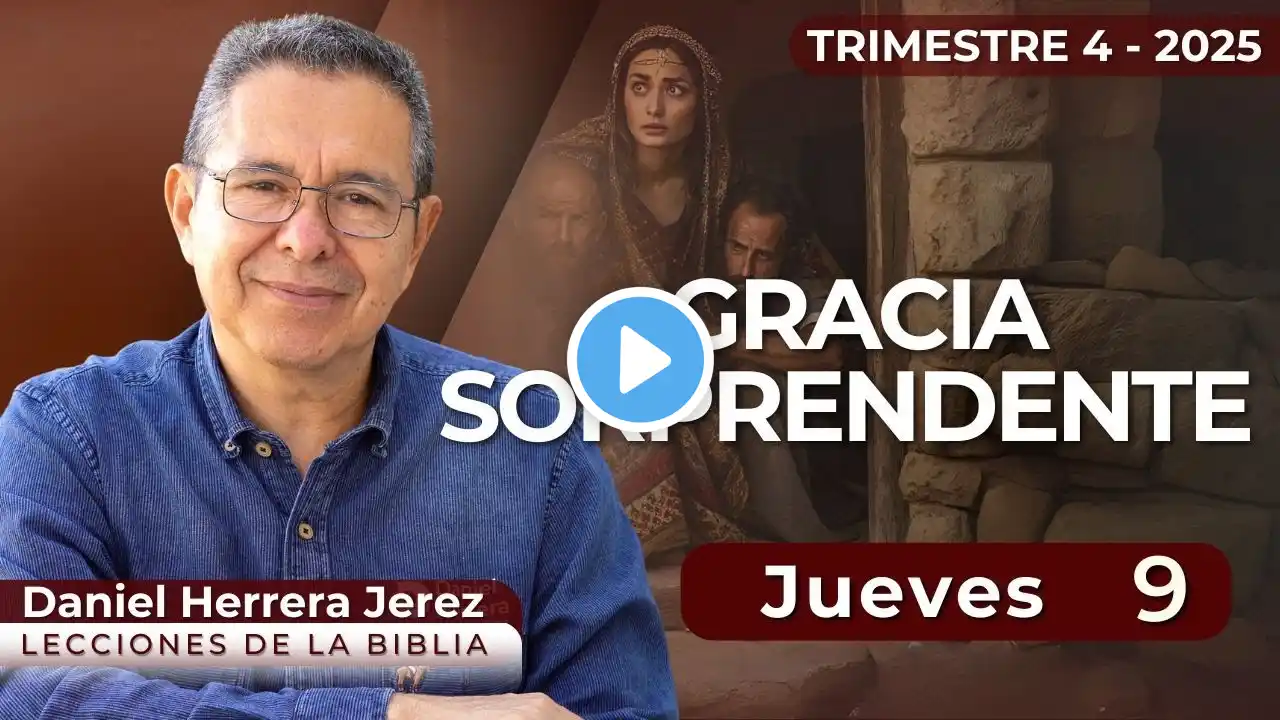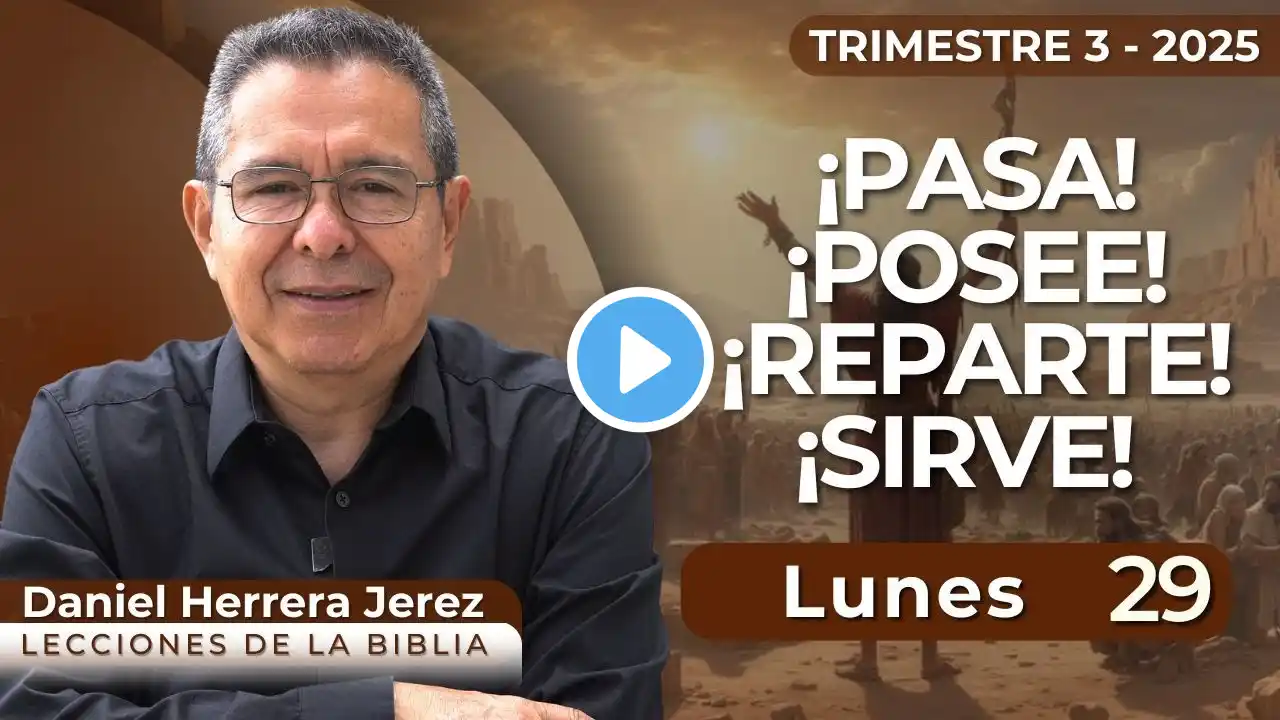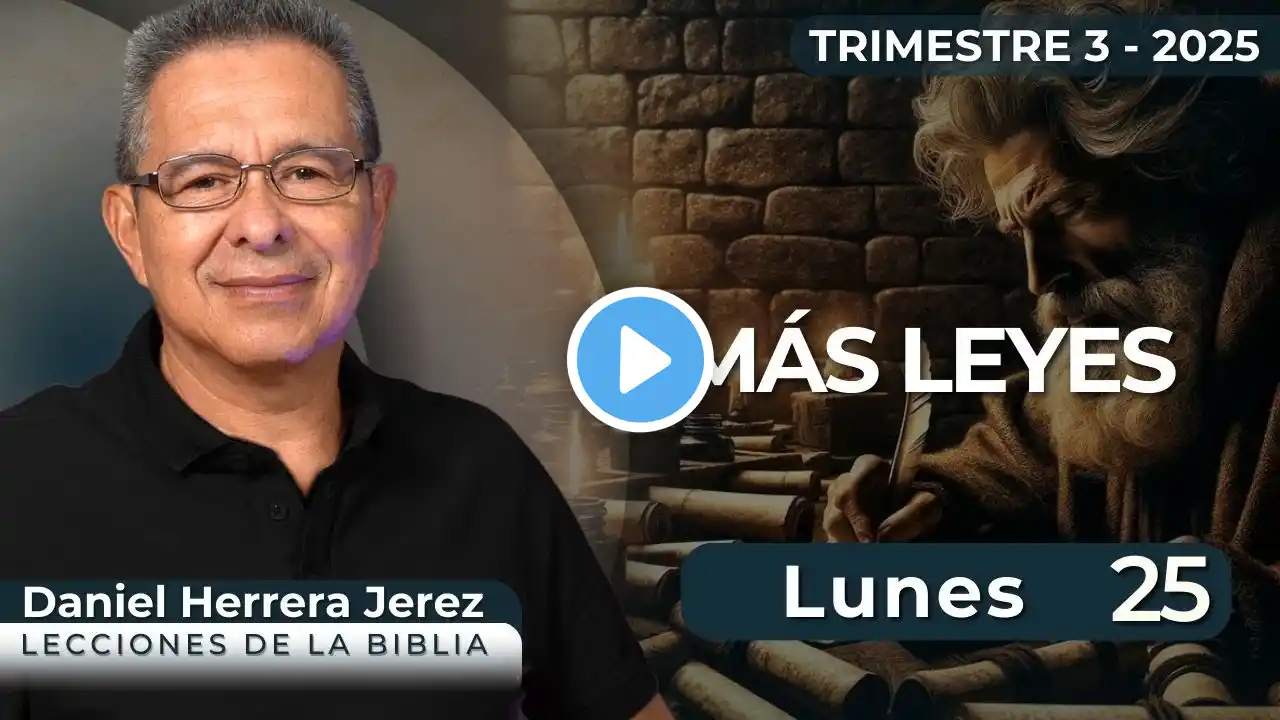
DANIEL HERRERA I SABBATH SCHOOL LESSON I OCTOBER 29, 2025
▶️ Thank you for watching this video! SUBSCRIBE HERE TO DANIEL HERRERA'S CHANNEL @Daniel Herrera Jerez / @danielherrerajerez ✅Open this link to join my WhatsApp channel: https://whatsapp.com/channel/0029Va11... Wednesday, October 29 | Lesson 5 FREE CHOICE Read Deuteronomy 20:10, 15-18; 13:12-18 and Joshua 10:40. How do these commands from God concerning war and how Israel was to proceed with idolatrous nations illuminate God's command to completely destroy some of those peoples? The Hebrew text uses a special term to describe the destruction of people in war: herem. This word refers to that which is "forbidden," "condemned," or "dedicated to annihilation." In most cases, this word designates the complete and irrevocable placing of people, animals, or inanimate objects in God's exclusive dominion, which in a war context often meant their destruction. The concept and practice of herem as the total eradication of a people in war must be understood in light of God's conflict with the cosmic forces of evil, in which His character and reputation are at stake. Neutrality has not been possible since sin appeared in the world. One can only be on God's side or against Him. The former leads to eternal life; the latter, to eternal death. Total destruction represented God's righteous judgment against sin and evil. God delegated to His chosen people, ancient Israel, the taking of possession of the Promised Land, the execution of His judgments, at a special moment in history. The consecration of something to destruction was under His strict theocratic control, limited to the period of conquest and the well-defined geographical area of ancient Canaan. As we saw in yesterday's study, those who were consigned to destruction constantly rebelled against God's purposes and defied them, never showing genuine repentance. Therefore, God's decision to destroy them was neither arbitrary nor nationalistic. Furthermore, Israel would receive the same treatment if it chose to adopt the Canaanites' lifestyle (compare Deut. 13). Although it may seem that the groups on either side of the divine war were predetermined (the Israelites would inherit the land and the Canaanites would be destroyed), the roles could be reversed, as we will see in the cases of Rahab, Achan, and the Gibeonites. People were neither protected nor arbitrarily destined for destruction. Those who benefited from a relationship with the Lord could lose their privileged status if they rebelled, while those subjected to a divine decree of destruction could submit to God's authority and live. What spiritual implications does the Canaanites' defiant attitude toward God have in our current context? That is, what consequences do the decisions we freely make have for us? #danielherrerajerez #biblelessons #sabbathschools2023 #danielherrerajerez ⏩God bless you, brothers and sisters of the Bible lessons community. Help us spread the teachings of God's word through all these means. The Lord bless you. 📲🎬Video Editing, Thumbnails, and Social Media: Esteban Noriega / estebannoriegaf


